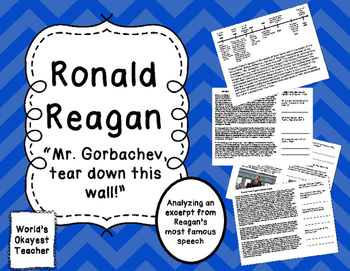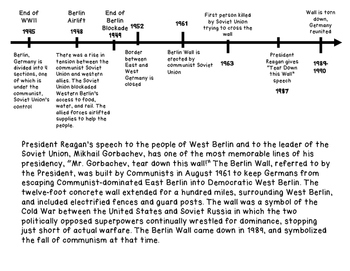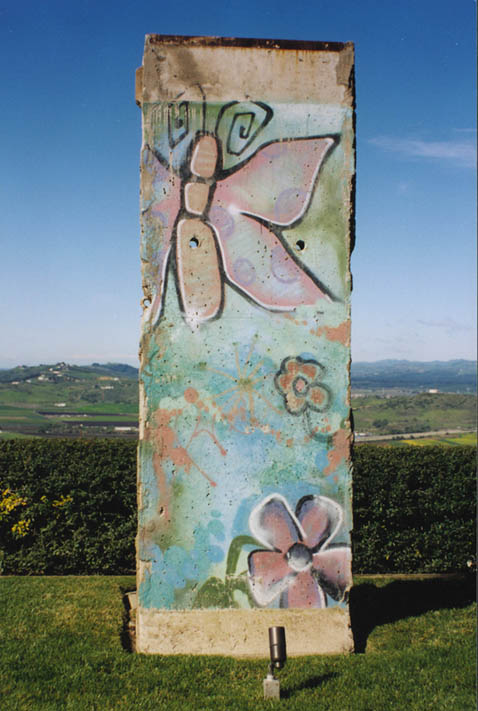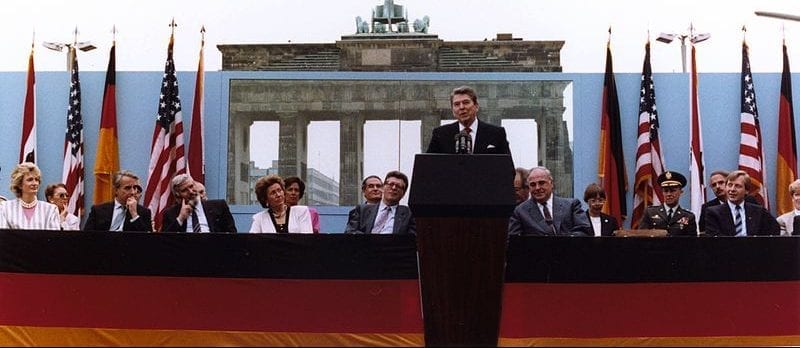On June 12, 1987, President Ronald Reagan delivered a speech at the Brandenburg Gate in West Berlin, Germany in which he famously called on Soviet leader Mikhail Gorbachev to "tear down this wall." The wall in question was the Berlin Wall, which had been erected in 1961 to divide East and West Berlin and prevent East Germans from fleeing to the West.
Reagan's speech was a powerful and poignant moment in the history of the Cold War, and it has been analyzed and debated by historians, political scientists, and pundits for decades. In this essay, we will delve into the background and context of Reagan's speech, examine the key arguments and themes that he presented, and consider the impact and legacy of his words.
First and foremost, it is important to understand the political context in which Reagan's speech was delivered. By the 1980s, the Cold War had been raging for decades, and tensions between the United States and the Soviet Union remained high. Reagan was a fierce critic of the Soviet regime and had often criticized its human rights abuses and suppression of dissent.
In his speech at the Brandenburg Gate, Reagan reaffirmed his commitment to democracy and freedom, and he called on Gorbachev to embrace these values as well. He argued that the Berlin Wall was a symbol of the "failure of communism" and a "screaming testament to the failures of the communist system." Reagan argued that the wall was a physical manifestation of the Soviet Union's attempt to impose its ideology on the people of East Germany, and he called on Gorbachev to dismantle it and allow the people of East and West Berlin to be reunited.
Reagan also emphasized the importance of the West's commitment to democracy and freedom, and he argued that these values were universal and applicable to all people, regardless of their nationality or ideology. He argued that the West's commitment to these values was a key reason for its economic and military success, and he encouraged Gorbachev to adopt these values as well.
In addition to these themes, Reagan's speech also contained a number of memorable lines and phrases that have been widely quoted and remembered. For example, he famously said, "Mr. Gorbachev, open this gate. Mr. Gorbachev, tear down this wall." These lines were a powerful call to action and a challenge to Gorbachev to demonstrate his commitment to democracy and freedom.
Overall, Reagan's speech at the Brandenburg Gate was a powerful and influential moment in the history of the Cold War. It was a clear and strong statement of the United States' commitment to democracy and freedom, and it called on the Soviet Union to embrace these values as well. Reagan's words had a profound impact on the course of the Cold War and helped to pave the way for the eventual collapse of the Soviet Union and the end of the Cold War.







